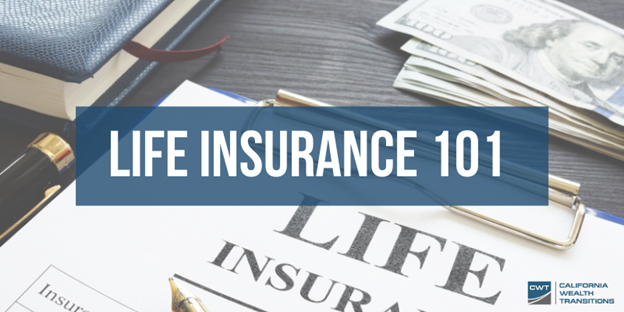Filing a life insurance claim is a relatively simple process and should be done as soon as possible after the loss of your loved one. Knowing the process is underway may lift some of the financial stress during this time and help you prepare to make decisions about the road ahead.
Continue reading5 Insurance Policies Every Small Business Owner Needs
This is the weekend you have finally decided it’s time to start your own business. You’ve had enough of the corporate rat race and now you want to take matters into your own hands. After you determine whether you want to set up as a sole proprietor, LLC, S-Corporation, or C-Corporation, there will be a litany of items to strike off the checklist to make sure the business is up and running. One of the key areas that most small business owners ignore is getting the right type of insurance policies set up as they initiate their new businesses. Even as the business gets established, business owners often ignore getting the right type of protection in place to insulate their business in case of unforeseen circumstances. Here are five insurance policies every small business owner needs.
1. DISABILITY INSURANCE
The challenge that most new business owners don’t understand is that if you show no verifiable income, you’ll have no chance of getting disability insurance. This type of insurance is designed to protect your personal income in the event that you can’t do the duties of your own occupation. Make sure the disability insurance you purchase covers ‘own occupation’ vs. ‘any occupation’. In addition, ensure that you have a cost of living adjustment and a future purchase option to buy more insurance if your income goes up.
2. HEALTH INSURANCE
If you are leaving your corporate job, one of the questions is whether to continue with COBRA from your former employer or should you get an individual policy through the new federal exchange. Is the best idea to get a Health Savings Account attached to a high deductible health plan, a catastrophic insurance policy, or go for the PPO option with a lower overall family deductible?
3. BUSINESS OWNER’S POLICY
This type of policy is usually bundled in packs that would cover several different areas for a business owner. Many of these policies cover items such as property insurance, basic liability insurance, some vehicle coverage insurance, business interruption insurance, bodily injury insurance, and renter’s coverage insurance.
4. E & O INSURANCE OR PROFESSIONAL LIABILITY INSURANCE
This type of policy is usually bundled in packs that would cover several different areas for a business owner. Many of these policies cover items such as property insurance, basic liability insurance, some vehicle coverage insurance, business interruption insurance, bodily injury insurance, and renter’s coverage insurance.
5. LIFE INSURANCE (BUY-SELL INSURANCE)
Often, most people who make a transition into a business leave the bulk of their life insurance behind at their employer. Getting your life insurance policies in place before you leave your employer is a good idea. If you have a business partner, one important item to get squared away is setting up a buy-sell agreement to make sure that cash is in place to protect your families and the business.
There are another half dozen different types of insurance policies you will want to consider when you begin to grow your new business. Since cash flow may be tight, many new owners forego paying for these insurances to save on cash flow. However, growing your business while walking on a high wire is not the best advice. Get the right types of insurance policies in place and you will be able to focus on growing top line revenue without worrying about a time bomb ticking at your door.
THE CONTENT IS DEVELOPED FROM SOURCES BELIEVED TO BE PROVIDING ACCURATE INFORMATION. THE INFORMATION IN THIS MATERIAL IS NOT INTENDED AS TAX OR LEGAL ADVICE. IT MAY NOT BE USED FOR THE PURPOSE OF AVOIDING ANY FEDERAL TAX PENALTIES. PLEASE CONSULT LEGAL OR TAX PROFESSIONALS FOR SPECIFIC INFORMATION REGARDING YOUR INDIVIDUAL SITUATION. THIS MATERIAL WAS DEVELOPED AND PRODUCED BY HELLO MY NAME IS, LLC TO PROVIDE INFORMATION ON A TOPIC THAT MAY BE ON INTEREST. THE OPINIONS EXPRESSED AND MATERIAL PROVIDED ARE FOR GENERAL INFORMATION, AND SHOULD NOT BE CONSIDERED A SOLICITATION FOR THE PURCHASE OR SALE OF ANY SECURITY. COPYRIGHT 2019 HELLO MY NAME IS, LLC.
Life Insurance 101
Life insurance is never something people really want to talk about. However, it is extremely important to be aware of and to employ into your family. Life insurance serves numerous purposes in terms of financial protection for yourself and your loved ones. To learn about the basics of life insurance, keep reading!
Term Life Insurance
As implicated by its name, term life insurance is life insurance coverage over a specific period of time. Once the term ends, you can either end your policy or re-enroll in it. There are several benefits to term life insurance, such as tax-free money for your family if and when you pass away and less expensive premiums. This type of policy is more suitable for young families, easiest to understand, and has more flexible options for policy length.
Permanent Life Insurance
There are several different types of permanent life insurance policies. To name a few, there is whole life insurance, universal life insurance, indexed universal life insurance, and variable life insurance. The benefits of permanent life insurance include consistent cash-value growth, advantages for your taxes, and more. Whole life insurance is the most common type of permanent life insurance policy, and it continues throughout your lifetime.
Universal life insurance entails that your premiums are pre-determined, but you are able pay in between your maximum and minimum. You can increase your death benefit as well. Universal life insurance policies allow you to earn interest which then increases your cash value on the plan.
Indexed universal life insurance is similar to other types of life insurance policies in that you are guaranteed payout after you pass away, however, with an indexed universal life insurance policy, “the policyholder can tie up to 100% of the policy’s cash value to a stock market index,” according to Investopedia. What remains ends up in a fixed account. While similar to an investment security, these are not within the same realm and are not considered investment securities.
Variable life insurance policies include an investment component as well and are dependent on how the market performs. This type of policy does pose more of a risk and should be thoroughly explained prior to enrolling, as it entails that your family members will receive a specific amount depending on your premiums and how your investments are performing.
As you can see, there is a lot of information and preparation to know about when you start thinking about life insurance policies. California Wealth Transitions is happy to help you understand each of these policies and what they entail. To speak with a financial advisor, schedule a call today!
Sources:
https://www.investopedia.com/ask/answers/08/variable-life-insurance.asp
https://www.northwesternmutual.com/life-and-money/what-is-permanent-life-insurance/
https://www.valuepenguin.com/life-insurance/permanent-life-insurance




